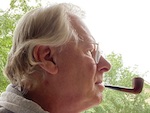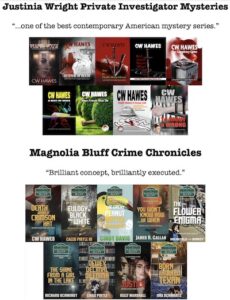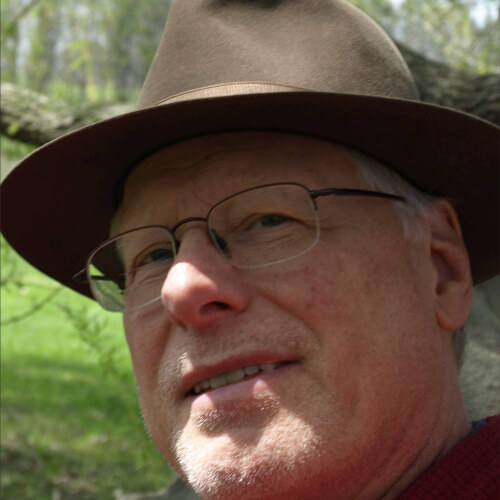Thrillers are all the rage today. In fact, just about every genre must have thrills and spills starting on page 1. Things blowing up and pistols blazing. And people running. Gotta have people running.
If someone took one of Agatha Christie’s novels, dropped her name, change the character names, and put the book in the 21st century — a dime to a doughnut it wouldn’t sell. Why? Because there’s nothing thrilling going on. The books are puzzles. The sleuth hunting for clues. A game between writer and reader to see if the reader can out guess the sleuth.
Wordle aside, who does puzzles anymore?
Raymond Chandler’s estate has tried unsuccessfully for years to make a cash cow out of Philip Marlowe. They failed. Why? Because Marlowe isn’t thriller material. He’s an introspective armchair philosopher, who happens to also be a private detective, putting together a puzzle to solve a crime. There are some thrilling moments, but the books aren’t thrillers. And never will be if Marlowe stays Marlowe.
I write mysteries. What I’m now calling slow burn mysteries to differentiate them from thrillers. And what some are calling mystery thrillers in order to make mysteries more popular.
Too often I’ve seen people start reading Festival Of Death (Justinia Wright Private Investigator Mysteries, Book 1) on Kindle Unlimited and then quit just before they get to the exciting part. They’ve gone through the build up and leave before the reward.
It’s akin to going to a restaurant, waiting in line, and then leaving just before your name is called.
Why do readers do this? I think this is mostly due to today’s reader expecting a thriller and not getting it. Even when there’s nothing in the book description to lead them to believe the book is a thriller. In the mindset of today’s reader all mystery and suspense novels are thrillers. And that is unfortunate. For both the reader and the writer.
So I’m going to start calling my mysteries (and traditional mysteries in general) — Slow Burn Mysteries.
Now what does slow burn mystery mean?
A book that is a slow burn mystery is a mystery that starts at the beginning and follows the detective through to the grand announcement of who did it.
These are the mysteries of the Golden Era. The mysteries of Christie, Stout, Wentworth, Marsh, the Lockridges, and so many more.
The story generally follows a 5-act structure, as follows:
Act I — We meet the sleuth, the characters, and learn of the problem to be solved.
Act II — The sleuth, having accepted the case, the challenge to solve the crime, begins gathering clues. This is the part where the detective obtains info, but doesn’t see how it all fits together.
Act IIIa — At this point the detective often gets frustrated and may even try to quit. Nothing is making sense.
Midpoint — With the sleuth thinking the case will never be solved, he suddenly obtains a key clue or realizes the true import of something he already found out but misinterpreted.
Act IIIb — Armed with his new knowledge or understanding, the sleuth begins to close in on the villain.
Act IV — The sleuth gathers all he needs to expose the villain and secure justice.
Act V — The villain is exposed and hauled off to jail and everything goes back to normal.
If you read a Sherlock Holmes story, or a Nero Wolfe mystery, or a Hercule Poirot novel, they all more or less follow this structure. There are very few to no instances of things blowing up or gun fights taking place. These are drawing room dramas with little violence and bloodshed occurring on stage.
And in spite of Raymond Chandler’s excoriation of British mysteries, his Philip Marlowe novels basically follow this same structure.
Marlowe goes about gathering clues, while giving us his outlook on life. There are few to no chase scenes. No gun fights. Nothing blowing up. Just Marlowe talking to people and gathering clues. Yet these are some of the most literary crime fiction books you’ll ever read. But they are 100% slow burn.
The slow burn mystery is like the slow burn horror tale: the fuse is burning, getting closer and closer to the powder keg. And then there is the big bang.
Satisfaction awaits you — and it’s worth the wait.
Comments are always welcome! And until next time, happy reading!
 CW Hawes is a playwright; award-winning poet; and a fictioneer, with three bestselling novels. He’s also an armchair philosopher, political theorist, social commentator, and traveler. He loves a good cup of tea and agrees that everything’s better with pizza.
CW Hawes is a playwright; award-winning poet; and a fictioneer, with three bestselling novels. He’s also an armchair philosopher, political theorist, social commentator, and traveler. He loves a good cup of tea and agrees that everything’s better with pizza.
If you enjoyed this post, please consider buying me a cup of tea. Thanks! PayPal.me/CWHawes

Justinia Wright Private Investigator Mysteries on Amazon!
Magnolia Bluff Crime Chronicles on Amazon!
Share This!

Fascinating take, and not one I’ve considered for a long time, despite being a fan of all the writers you mentioned. It is worth noting that all three authors (actually four, we need to count you,) are quality writers who create vivid and relatable landscapes for these slow burns to transpire. Thanks for writing.
Thanks for stopping by, Richard!
That is very true: the slow burn wouldn’t work without that landscape. It contributes greatly to the whole. I’ll make note of that when conducting promotions.
And thanks for the complement. Appreciate it.